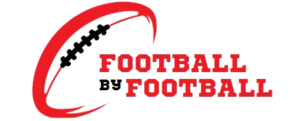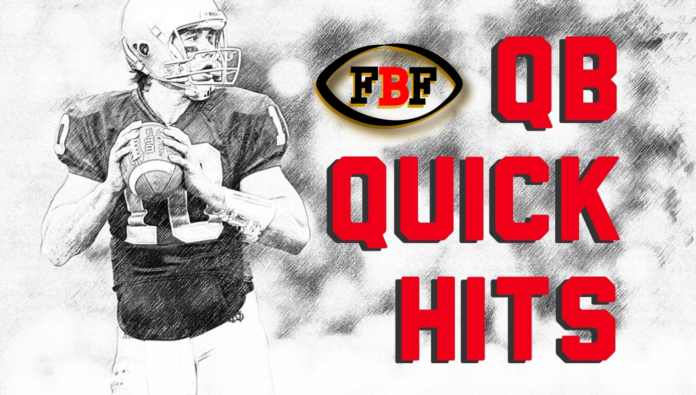Updates & Reaction on Winston, Schaub & Braxton Miller
Winston Wins
Jameis Winston’s Pro Day at Florida State had a dramatic start when an outside “Go” pass caused wide receiver Rashad Green to collide with the ESPN set. While that specific throw wasn’t the most precise among the approximately 102 passes Winston made that day, it was part of a session that also involved pocket movement drills, which can understandably affect the accuracy of any quarterback.
Quarterback expert George Whitfield took center stage once more, actively wielding a broom as he guided Winston through various drills for a substantial part of the day. It was clear that both Winston and Whitfield were eager to showcase Jameis’ footwork, both within and outside the pocket.
Upon my thorough analysis of Winston’s performance throughout this season, it became evident that his suboptimal footwork, when pressured in the pocket, resulted in inaccurate passes and turnovers. This aspect played a significant role in the decline in his production, with statistics dropping from 40 touchdowns and 10 interceptions in his redshirt freshman season to 25 touchdowns and 18 interceptions in his redshirt sophomore year.
Winston’s spring seems to have been wisely dedicated to his full-time commitment to playing quarterback and leaving behind his baseball pursuits. This shift is significant because the throwing motions in the two sports can be quite distinct. Given that Winston has juggled both baseball and football in the past, his exclusive focus on refining his football mechanics suggests that there is room for improvement on the horizon.
Winston’s throwing motion appeared more compact, and his footwork seemed to exhibit improvement. However, there’s still room for growth in terms of his agility when shifting and positioning his feet for throws. One specific area of concern is Winston’s drops from under the center. When not using play action, he tended to “step in the bucket” or drift toward his backside in the pocket. This habit could be problematic in the NFL, where pocket space is limited, and it’s essential not to stretch either side of the offensive line. Dropping directly back helps maintain the pocket’s integrity and keeps defenders on both sides equally at bay, which is particularly crucial if you’re a Tampa Bay Buccaneer. wink wink
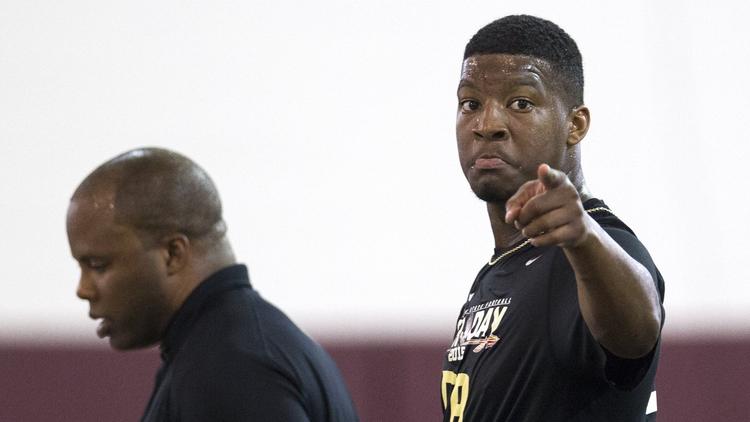
This issue doesn’t seem too challenging to address and is something a team will likely prioritize for correction. On the whole, Winston had a strong performance, completing the majority of his throws. It would have been preferable if he consistently placed the ball in a way that allowed his targets to catch and continue their run. Occasionally, the passes were catchable but required the tight ends or wide receivers to adjust or slow down. Notably, he showcased endurance by maintaining consistent touch and arm strength throughout the entire session, which is a significant accomplishment. It’s worth noting that 102 attempts are more akin to the workload of a baseball pitcher rather than a typical NFL game (for context, Drew Bledsoe’s 70 pass attempts in a 1994 game are the highest in NFL history).
Jason Licht, the General Manager of the Tampa Bay Buccaneers, echoed these sentiments, stating, “This was truly exceptional. He threw a full nine innings.” Licht further emphasized, “He showcased his arm strength, from the first throw to the 100-and-something throw.” Licht particularly highlighted Winston’s “leadership, arm strength, and overall conditioning.” If Licht indeed left with a positive impression, that could be the most crucial takeaway from the session.
The Buccaneers are already on the clock, and it appears they have their man.
Schaub Signs in Baltimore
The Ravens have secured their backup quarterback by signing a one-year contract with former Oakland Raider Matt Schaub. Recognizing their urgent requirement for a backup quarterback with real game experience, the Ravens have agreed to a deal worth $2 million, with the potential to earn an additional million through playtime incentives, as reported by Pro Football Talk.
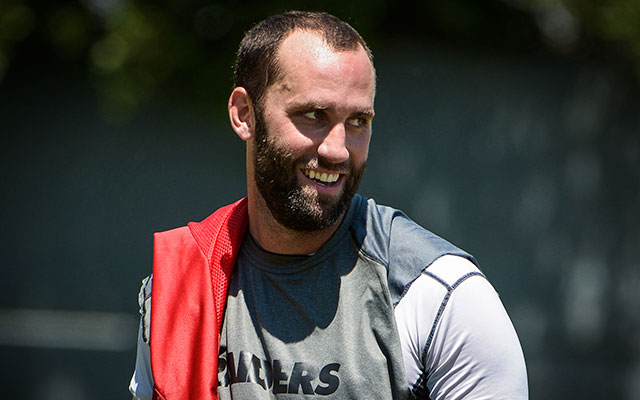
Joe Flacco has maintained an impeccable attendance record throughout his 7-year NFL career, never missing a game. However, the Baltimore Ravens have wisely chosen to prevent a situation where inexperienced backup quarterbacks like Keith Wenning and Bryn Renner are left in a position similar to that of last year’s Arizona Cardinals. It won’t be surprising if other teams that were willing to rely on limited experience behind their starting quarterback last year reconsider this strategy after witnessing the Cardinals’ struggles with that approach. Having a Super Bowl-caliber team without an experienced quarterback under center can translate to an early exit from the playoffs.
Schaub will not only serve as a dependable backup but will also bring a wealth of experience to mentor and nurture the development of the younger quarterbacks. General Manager Ozzie Newsome appears to have a keen understanding of what’s optimal for his team, and while this may not be their most significant free-agent signing this offseason, it has the potential to be the most crucial one.
Disciplinary Action for Braxton Miller…Why?
There were rumors circulating that the Ohio State Buckeyes’ quarterback competition had narrowed down to two candidates for a brief period. Braxton Miller added to the speculation when he shared a photo on Instagram, where he was pictured alongside his trainer next to a table filled with Advocare products. The NCAA permits athletes to have self-employment opportunities, but they are restricted from leveraging their athlete status for promotional purposes, creating a somewhat ambiguous and uncertain boundary.
Brad Barnes, the director of compliance at Texas A&M, provides additional clarity on the matter: “A student-athlete’s earnings cannot encompass any compensation attributed to the value, utility, or advantage that the athlete may offer the employer due to the publicity, reputation, fame, or personal following acquired as a result of their athletic prowess.”
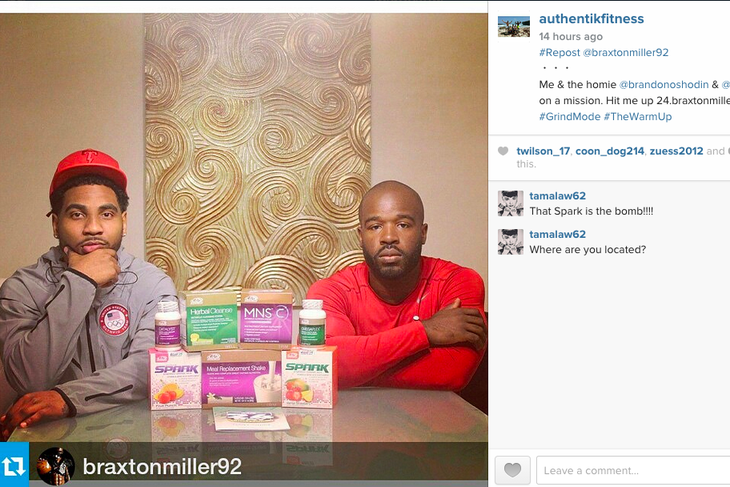
Exactly, it’s quite logical. The NCAA prohibits student-athletes from capitalizing on their name or image for any form of gain, as it could put their amateur status at risk. Yet, they seem to have no qualms about benefiting from the value these athletes generate. Isn’t college supposed to be a preparation for the “real world”? What does the NCAA expect will happen when these athletes transition to the business world, regardless of whether they pursue a professional sports career or not? Naturally, they will utilize the publicity, reputation, or fame they’ve garnered to establish careers and achieve success.
Isn’t that precisely what every student does, and not just student-athletes? Why should student-athletes be burdened with this disadvantage and denied the chance to equip themselves for the future?
This matter gets somewhat complex when we consider the framework of AdvoCare. AdvoCare is categorized as a multi-level marketing company focusing on weight loss and nutrition, sometimes referred to as a “pyramid scheme.” They claim that the AdvoCare business opportunity allows individuals to discover their maximum earning potential. It does make you wonder, with all those unlimited meal plans, do we really need more? In any case, the structure of this company certainly challenges the strictness of these regulations.
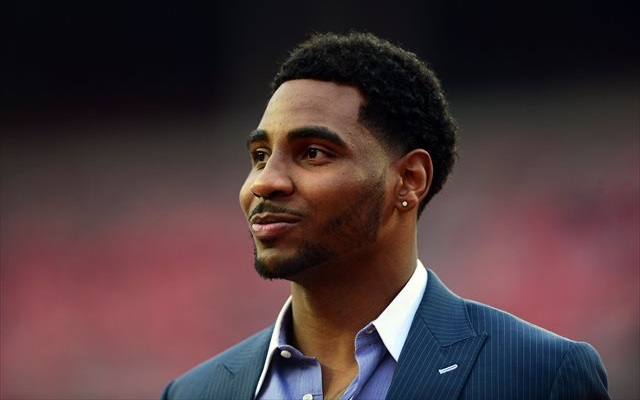
Let’s consider a scenario in which Miller happens to work for Advocare, which should be acceptable if he’s selling the product without relying on his name or likeness to boost sales. However, it becomes a challenging task for the NCAA to definitively establish whether the earnings stem from people buying the product because Braxton Miller is associated with it, as opposed to buyers simply enjoying the product. Distinguishing between the two would require the NCAA to interview every customer Miller has sold to, in order to determine their motivations for the purchase. This would be a substantial waste of both time and resources, although it’s safe to assume that the NCAA has an abundance of both to spare.
A picture can speak 1,000 words, but that doesn’t make it illegal. How can the NCAA assume that Miller received any financial gain from that post on Instagram? Better yet, how will the NCAA govern every student-athlete’s post on Instagram that “poses” wearing their favorite brand or product? This happens all the time, so how will they decide to police the thousands of student athletes who are expressing their first amendment rights daily? Is Miller the example? Scapegoat? These athletes ARE NOT being paid for their post but rather glorified by followers. Last I checked, that’s not illegal.
Cleveland.com’s Ari Wasserman reported yesterday that “a source close to Ohio State told Northeast Ohio Media Group that the program expects a secondary violation with no eligibility lost and a letter of education for Miller to be the punishment.”
In this particular case, it seems that the consequences for Miller will be quite lenient, akin to a “slap on the wrist.” He won’t be losing eligibility or experiencing any substantial penalties. Nevertheless, it does highlight a substantial issue that the NCAA will eventually need to confront. Should athletes be permitted to leverage their reputation, fame, or personal following to generate income? I believe they should. If others can do it, why shouldn’t they have the same opportunity?
